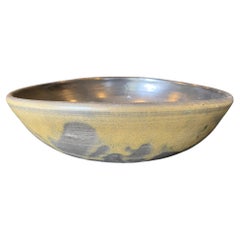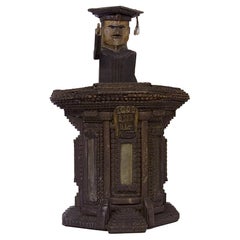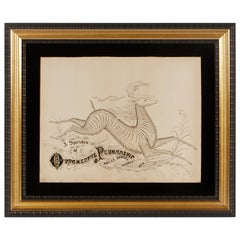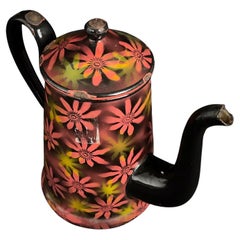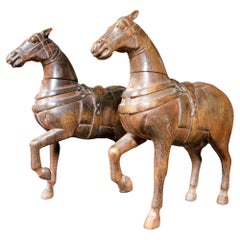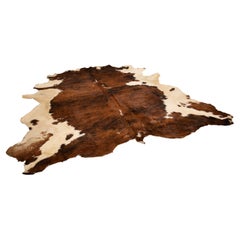Folk Art
20th Century American Mid-Century Modern Folk Art
Porcelain, Pottery
Late 19th Century American Antique Folk Art
Wood
1880s Antique Folk Art
Paper
20th Century Folk Art
Metal
Early 19th Century European Antique Folk Art
Wood
1970s American Vintage Folk Art
Cowhide
Early 20th Century French Romantic Folk Art
Wood, Canvas, Linen
15th Century and Earlier South American Tribal Antique Folk Art
Ceramic
Late 20th Century Moroccan Folk Art Folk Art
Wood
20th Century French Beaux Arts Folk Art
Ceramic
Early 20th Century Folk Art
Wood, Canvas
Early 19th Century American Country Antique Folk Art
Wood
Early 20th Century North American Folk Art Folk Art
Steel
Late 19th Century Antique Folk Art
Paint
Early 20th Century Danish Other Folk Art
Pine
Late 19th Century British Victorian Antique Folk Art
Leather
15th Century and Earlier Peruvian Antique Folk Art
Wood
20th Century Folk Art
Ceramic
Mid-18th Century Sri Lankan Antique Folk Art
Bronze
1790s Federal Antique Folk Art
Silk
1950s Indonesian Other Vintage Folk Art
Yarn
Early 20th Century Unknown Folk Art
Wood
1980s American Native American Vintage Folk Art
Cedar
Late 19th Century American Late Victorian Antique Folk Art
Iron
Late 19th Century English Late Victorian Antique Folk Art
Bone, Wood
21st Century and Contemporary Turkish Revival Folk Art
Wool, Natural Fiber, Organic Material
15th Century and Earlier Antique Folk Art
Rattan, Mirror
2010s Italian Modern Folk Art
Leather
1950s French Vintage Folk Art
Fruitwood, Lacquer
1910s American Vintage Folk Art
Paper
Early 20th Century Indian Tribal Folk Art
Glass
1820s English Antique Folk Art
Paint
21st Century and Contemporary British Folk Art
Silver Leaf
Early 20th Century Folk Art
Wood
1650s American Native American Antique Folk Art
Wood
1970s French Vintage Folk Art
Felt
Mid-20th Century Turkish Oushak Folk Art
Wool, Natural Fiber
Early 20th Century Turkish Kilim Folk Art
Wool, Natural Fiber
21st Century and Contemporary Peruvian Folk Art
Stone, Soapstone
1970s American Folk Art Vintage Folk Art
Paper
20th Century American Folk Art Folk Art
Wood
Early 20th Century English Folk Art
Metal
Early 19th Century American Antique Folk Art
Wood
19th Century European Georgian Antique Folk Art
Wood
2010s Italian Mid-Century Modern Folk Art
Jute
1910s American Folk Art Vintage Folk Art
Felt
Mid-19th Century Swedish Antique Folk Art
Paper
20th Century American Adirondack Folk Art
Iron
Early 1900s Antique Folk Art
Wood
1970s Panamanian Tribal Vintage Folk Art
Cotton
Early 1900s German Folk Art Antique Folk Art
Wood, Paper
20th Century French Empire Folk Art
Metal
Mid-20th Century Cameroonian Tribal Folk Art
Wood
20th Century Folk Art
Wood
16th Century Peruvian Pre-Columbian Antique Folk Art
Enamel
Early 19th Century Antique Folk Art
Canvas
Late 20th Century American Folk Art Folk Art
Canvas
18th Century Dutch Baroque Antique Folk Art
Ceramic, Pottery
Early 20th Century American Folk Art
Glass, Wood
20th Century American Native American Folk Art
Clay
Vintage, New and Antique Folk Art
Folk art refers to a genre of art that shares the creator’s traditions, offering not just an artistic display but an opportunity to learn about a culture. Vintage, new and antique folk art typically reflects a heritage or location. It can include utilitarian objects and handmade art as diverse as weather vanes, portraiture and paintings, carnival art, quilts and duck decoys.
American folk art is frequently valued because of the traditional skills involved, like weaving, hand-carving wood and even stonework. Many folk artists are self-taught, while some train as apprentices within their community. By using available materials and taking a personal approach to their creations, artists ensure each piece is unique and conveys a story. Native American folk art includes functional objects reflecting their heritage, such as baskets, textiles and wooden pieces.
During the Great Depression, artistic materials in America were hard to come by, so artisans used discarded wood from cigar boxes and shipping crates to make highly stylized, notched pieces — most often picture frames and boxes — that are today sought after by collectors. This folk art style is called tramp art and was popular from roughly 1870 until the 1940s.
Folk art brings vibrant culture and traditions into your home. Browse an extensive collection of folk art on 1stDibs.
Read More
A Giant Wedding Cake Has Us Looking at Portuguese Tiles in a New Light
At Waddesdon Manor, artist Joana Vasconcelos has installed a three-tiered patisserie inspired by the narrative tile work of her homeland. We take a look at the cake sculpture and how Portuguese tiles have been used in architecture from the 17th century to today.
Why Jules Chéret Was the King of the Modern Poster
The streets of fin-de-siècle Paris were set aglow with colorful poster ads, thanks to the printing techniques invented by Jules Chéret. Now, the Milwaukee Art Museum is celebrating this undersung talent in America's first solo show dedicated his exuberant works.
Why the American Flag Has Had So Many Different Star Patterns
Expert Jeff Bridgman explains the history and meaning behind the twinkling constellations that have graced Old Glory.
Peggy Guggenheim Loved Modernism, but She Also Collected Tribal Art
The iconoclastic style setter displayed African and Oceanic art, as well as works by indigenous peoples of the Americas, alongside pieces by such major modernists as Pablo Picasso and Jackson Pollock.
The 13-Star American Flag Had More Variations Than You’d Think
Perfect for July 4th weekend, a new show at Philadelphia's Museum of the American Revolution displays an array of antique red, white and blue flags.
Tramp Art, America’s Most Misunderstood Art Form, Is Trending in Interiors
Designers are beginning to see this enigmatic form of folk art in a whole new light.
